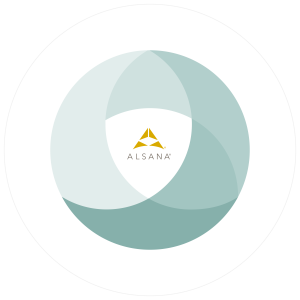ARFID Treatment for Adults
Eating disorder treatment programs for adults of all genders struggling with Avoidant/Restrictive Food Intake Disorder (ARFID).
Reach out to us today!
What is Avoidant/Restrictive Food Intake Disorder (ARFID)?
Avoidant/Restrictive Food Intake Disorder (ARFID) is an eating disorder (previously known as selective eating disorder) that, like anorexia nervosa, is characterized by severe dietary restriction, ...
usually resulting in malnourishment. However, unlike anorexia, dietary restriction in individuals with ARFID is usually not motivated by fear of weight gain or a desire to lose weight.
ARFID is a relatively new diagnosis in the DSM-5 and not as well-known as some other eating disorder diagnoses. It is important to understand that ARFID is not just “picky eating;” the health risks associated with this disorder are quite serious.
ARFID Subtypes
- Avoidant ARFID: When an individual avoids sensory experiences associated with certain foods (tastes, textures, temperatures, smells).
- Aversive ARFID: When an individual fears adverse consequences of eating certain foods (illness, choking, allergies).
- Restrictive ARFID: When an individual has little or no interest in food in general.
- ARFID Plus: When an individual diagnosed with ARFID develops symptoms similar to anorexia nervosa (body image concerns, desire to lose weight).
ARFID Treatment Programs for Adults
Alsana’s eating disorder treatment programs provide a soft landing for adults struggling with ARFID and co-occurring mental health conditions.
ARFID treatment is provided by our multidisciplinary, collaborative team of treatment professionals who will walk alongside and support clients regardless of where they are on their recovery journey. Residential and PHP/IOP programs are available in Alabama, California, and Missouri. Virtual PHP/IOP programs are also available to serve clients who are ready to thrive and hone their recovery skills within a less-structured treatment environment.
Nutritional Care for ARFID Clients
At Alsana, ARFID treatment emphasizes nutrition education and experiential practices that promote greater food tolerance.
During the assessment process, Alsana dietitians gain a thorough understanding of clients’ eating and nourishment challenges and work with our eating disorder-informed culinary team to create custom meal plans that meet ARFID clients where they are in recovery.
Dietitians also collaborate closely with Alsana’s therapeutic team to help clients reduce anxiety and stress around mealtime and increase the number of acceptable foods over the course of treatment.
Our goal is to create food neutrality by taking out the moral judgment of food and focusing on nourishment, flexibility, and pleasure in the nutritional healing process. Learn More About Alsana’s Approach to Nutritional Care ⟶
ARFID Nutritional Care at Alsana
- Weekly nutrition psychoeducation group
- Nutrition education
- Hands-on experientials
- Kitchen skills
- Individualized meal plans


Virtual ARFID Treatment
Virtual PHP/IOP make ARFID treatment more accessible for adults with busy schedules. Online treatment programs allow clients to hone their eating disorder recovery skills with peer support and minimal disruption to their daily lives.
- Multidisciplinary virtual care team.
- All-Inclusive Nutrition Philosophy.
- Guided, recovery-compatible movement and exercise.
- Compassion-focused approach to therapy.
ARFID Signs and Symptoms
- Fears of choking or vomiting
- Limited range of preferred foods t (i.e., “picky eating” that progressively worsens)
- Lethargy and malnutrition
- Avoidance of specific food items as related to sensory features (i.e. texture, color, taste, smell)
- Food refusal related to aversive or fear-based experience
- Lack of appetite or interest in food
- No body image disturbance or fear of weight gain
- Difficulty chewing food
- Weight loss
- Social isolation/avoidance of social situations involving food
ARFID Treatment Works Best When Delivered Early
It’s important to note that ARFID is distinct from other eating disorders like anorexia nervosa or bulimia nervosa, as it is not primarily driven by concerns about body weight or shape. Instead, ARFID is characterized by the avoidance or restriction of food due to sensory sensitivities, aversions, or other non-weight-related factors. If you or someone you know is exhibiting signs of ARFID, it’s essential to seek help from a healthcare provider or mental health specialist experienced in eating disorders and ARFID treatment for a proper evaluation and treatment plan. Early intervention can be crucial in addressing ARFID and preventing long-term health complications.
ARFID Health Risks
- Electrolyte imbalance
- Low blood sugar
- Kidney and liver failure
- Dizziness and fainting
- Difficulty concentrating and sleeping
- Weakened immune system
- Menstrual irregularities (including period stopping altogether)
- Bone density loss/osteoporosis
- Cardiac complications
- Gastrointestinal issues such as stomach cramps/aches, constipation, acid reflux
- Dry skin
- Brittle nails and hair / thinning hair
- Lanugo (fine hair on the body)
- Weak muscles
- Swollen feet
- Cold, mottled hands and feet
- Slowed heart rate
- Abnormal or low hormone, thyroid, potassium levels, or low blood cell count
- Anemia
Paying for ARFID Treatment – Insurance Coverage
Alsana is a preferred in-network provider for all major insurance companies.












ARFID in Adults
Because ARFID is a relatively new diagnosis, it is often misunderstood. One common misconception is the idea that ARFID occurs mainly or exclusively in children. The fact is, ARFID can impact people of all ages; lack of awareness and other factors make adults less likely to seek help or receive a proper ARFID diagnosis.
Children with undiagnosed, untreated ARFID may continue to struggle with the disorder well into adulthood. ARFID can also develop later in life. Regardless of age, individuals with ARFID struggle to meet their nutritional and energy needs consistently, which puts them at risk for a number of serious health complications.


Alsana's Whole-Person Approach to ARFID Treatment
At Alsana, we treat people – not just illnesses. We’ve designed all of our programming in alignment with our Adaptive Care Model®, which prescribes an individualized, whole-person care approach for clients recovering from eating disorders and co-occurring conditions. This evidence-based method seeks to facilitate multidimensional healing through medical, therapeutic, and nutritional care, as well as through relational and movement support. This whole-person approach to eating disorder treatment helps clients hone the recovery skills needed to sustain recovery post-treatment.

Begin your recovery journey with Alsana.
*Alsana takes an individualized, whole-person approach to eating disorder treatment, however it is not considered a form of holistic medicine.







